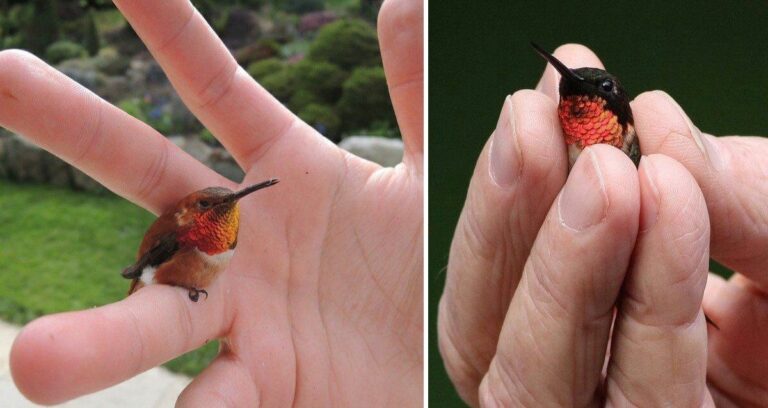They’re bee hummingbirds, which lives along the West Coast of the U.S., including Alaska in the summer. The bee hummingbird is a bit smaller, has no rufous color and lives in Cuba.

This delicate bird is one of nature’s smallest and a true evolutionary marvel. It’s even the size of a bee, measuring only 5-6 cm long and weighing less than 2g.
Their beautiful iridescent plumage, like that of all hummingbirds, distinguishes them from bees. When they fly, it resembles a flying diamond. They are truly breathtaking, and if you get the chance to see them, don’t pass it up.

At the estrus season begins in March, males have a green bodies with bright red necks. Females are blue with a black underbelly and a black neck. Males glow a vibrant pink/red color from head to the throat and all-around singing and aerial performances are all intended to attract their female counterpart.
They lay eggs the size of a coffee bean, about an inch long! However, due to the brilliant plumage, the mother bird will not allow the father to approach the eggs because predators will notice the plumage.

Bee hummingbirds, like other hummingbirds, primarily feed on nectar, but will also eat insects and spiders on occasion.
Hummingbirds are said to visit approximately 1,500 flowers per day, benefiting the ecosystem by promoting plant reproduction. However, they do not migrate from their native Cuba and are content with subtropical temperatures.

The bee hummingbird is currently listed as near threatened, which means its population is declining. It’s a shame for this lovely bird; let’s work together to protect the environment for these wonderful creatures!
Please SHARE this story with your friends and family.







